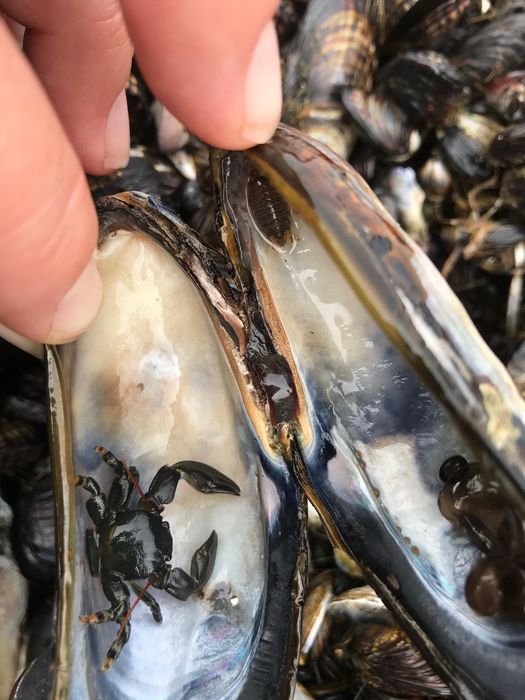Some marine species can help protect others from climate change by shielding them from heat, according to a new study by a Texas A&M University at Galveston professor.

Credit: Laura Jergens / Texas A&M-Galveston
Some marine species can help protect others from climate change by shielding them from heat, according to a new study by a Texas A&M University at Galveston professor.
Laura Jurgens, assistant professor of marine biology, and colleagues from the University of Vermont and the University of California at Davis detail the findings in the current issue of Ecology.
The team studied how tiny crabs and isopods – which are marine versions of pill bugs – that live on rocky shores react to warming of their natural rocky shore habitats. They found that the mussel beds these animals live in protect them from temperature swings and keep them from drying out and dying on hot, sunny days.
“These mussel beds provide a sort of ‘ecological air conditioning system’ within their canopies, just like forests,” Jurgens said. “The results show how conserving habitats formed by plants and animals can help buy time for heat-sensitive species, helping them weather the near-term effects of climate change. But it also means that habitat destruction can make other species more vulnerable to climate warming.”
The research was conducted in marine areas near Bodega Bay in northern California.
Jurgens said without the protection of mussel beds, some marine species cannot survive under present-day conditions.
“But they can tolerate even a worse-case climate scenario for perhaps as long as the year 2099 as the mussel bed environment remains intact,” she said. “This research shows that it’s more important than ever to protect vulnerable habitats like mussel beds, which are threatened by trampling and destructive recreational harvests of mussels in many coastal areas of the U.S.”
The study was funded by the National Science Foundation.
Journal
Ecology
DOI
10.1002/ecy.3596
Method of Research
News article
Subject of Research
Not applicable
Article Title
Facilitation alters climate change risk on rocky shores
Article Publication Date
23-Nov-2021




